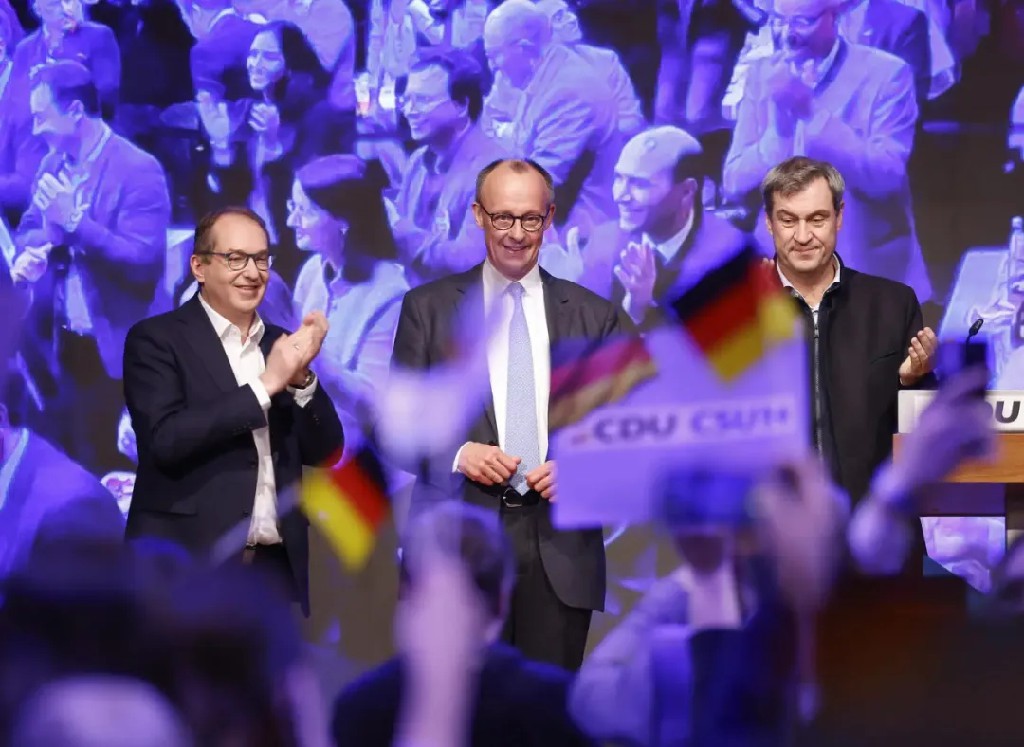German Election: How Educational Policies Are Reshaping the Country's Future Competitiveness?

On the 24th local time, preliminary results of the German federal election showed that the Alliance Party, led by the Chairman of the Christian Democratic Union, Merz,
as the prime ministerial candidate, emerged victorious in the Bundestag election with a vote share of 28.6%.
The outcome of this election not only impacts Germany's future political landscape but also exerts a profound influence on the field of education. This battle concerning
the country's future talent strategy is unfolding intensely across three dimensions: higher education reform, vocational education transformation, and international
educational cooperation.
The Social Democratic Party's "Universal Intellectual Revolution" plan has shocked the academic community. The party promises to invest 5.8 billion euros annually
to create "barrier-free universities," not only eliminating tuition fees but also abolishing entry restrictions for traditional Gymnasium schools. Its pilot project,
the "Quantum Campus Plan," has been launched at Freie Universität Berlin, utilizing brain-computer interface technology for direct knowledge transmission, sparking
philosophical debates about the essence of education.
In stark contrast, the Christian Democratic Union has introduced the "Fortress of Excellence in Education" strategy. In 12 newly established "Schools of Future
Technology" in Baden-Württemberg, scientists from the Max Planck Institute and engineers from SpaceX jointly teach, allowing students to access nuclear fusion
experimental devices at age 14. The party also proposes restoring Latin as a mandatory subject and adding a special topic on "German Scientific and
Technological Civilization" to history textbooks.
The Green Party has forged a third path. Its "Climate University" plan requires all disciplines to integrate content on the ecological crisis. Heidelberg University
has piloted a deep integration of organic chemistry with carbon capture technology. Even more radical is the establishment of an "Algorithm Ethics Degree"
to cultivate digital citizens capable of deciphering TikTok's recommendation algorithms.
The Free Democratic Party fully embraces marketization, allowing credits from Coursera MOOCs to offset up to 40% of university courses and even permitting
companie so autonomously award doctoral degrees. Daimler AG is poised to issue the first batch of "Industrial Engineering" PhD degrees.
Facing pressure from manufacturing upgrades, the parties are engaged in an "arms race" in the field of vocational education. The Social Democratic Party's
"Augmented Reality Dual System" has garnered attention: in Volkswagen factories, apprentices use virtual reality equipment to debug hydrogen engines not yet
in mass production, with the system generating real-time 12-dimensional data maps to guide operations.
The Christian Democratic Union promotes the "Revolution in Cross-National Certifications," with German vocational education certificates now directly recognized
by 27 countries, including China and India. The Stuttgart Vocational Education Center is training engineers in bulk from Southeast Asia.
The Free Democratic Party's introduction of a "Professional Doctorate" has caused a seismic shift in academic circles. Daimler AG can autonomously award engineering
doctorates, and the Technical University of Munich has established the "Super Craftsman Academy," integrating theoretical physics and precision manufacturing
courses, allowing students to freely switch between academic and applied tracks during their master's studies.
The Free Democratic Party's "Skills Bank" system disrupts traditional educational models. This system establishes digital learning accounts for every citizen.
A 45-year-old automotive technician in Munich successfully redeemed a Master's degree in Mechanical Engineering through 5,000 "micro-credits" accumulated
through sporadic learning.
The Green Party ties vocational education to its climate strategy, with its "Green Craftsman Plan" requiring all vocational students to master the maintenance
and operation of photovoltaic power stations. A micro-nuclear fusion device on the rooftop of a Berlin vocational school has already begun supplying electricity
to the community.
Educational openness policies have become key to Germany's competition for global intellectual resources. The Free Democratic Party's "Educational Green
Card Plan" has shaken Europe and the United States: STEM students from abroad automatically receive a five-year work visa upon graduation, and admission
rates for Chinese students in the computer science department of the Technical University of Berlin have surged by 300%. Of more strategic significance
is the "Dual System Global Export Project," where the German Vocational Education Agency has established an autonomous driving training center in Mexico City,
providing customized talent for Volkswagen's factories in the Americas.
Moreover, cooperation with the East presents a new paradigm. The "Industry 4.0 Dual Master's" project between China and Germany has made breakthrough
progress: Tsinghua University and RWTH Aachen University have jointly developed a digital twin course, enabling real-time data interaction between factories
in Beijing and Düsseldorf.
In addition, the "German Educational Green Card" plan provides automatic work permits to graduates from the top 100 universities worldwide, with a special
policy for Chinese students: through the "Chinese-German Dual Mentorship" project, top talents are identified. Based on the "Academic-Industry Double Helix"
as its underlying logic, this project pairs emerging scholars in artificial intelligence and renewable energy from China with senior scientists from the Max Planck
Institute and Fraunhofer Society in Germany, forming a knowledge loop within the "Industry 4.0 Joint Laboratory" co-established by RWTH Aachen University
and Tsinghua University. Chinese mentors provide massive application scenario data, while German mentors infuse centuries-old precision manufacturing
methodologies, enabling participants to master both quantum sensor chip design and the implementation of smart factories in the Yangtze River Delta.
The essence of this educational policy battle lies in the paradigm shift from industrial civilization to intelligent civilization, concerning the rebalancing
of technical ethics and human traditions and involving the reconstruction path of national strategic competitiveness. This is not just a choice of educational
models but a choice of civilizational direction: finding a balance between inclusiveness and excellence, tradition and innovation, humanity and technology
in the multi-dimensional tension will determine whether this "nation of thinkers" will continue to shine with wisdom in the 22nd century. As the contemporaries
of educator Humboldt put it, "We are not reforming the education system but redefining human learning genes."

 AACSB
AACSB ICDE
ICDE ACE会员
ACE会员 粤公网安备 44030502005513号
粤公网安备 44030502005513号